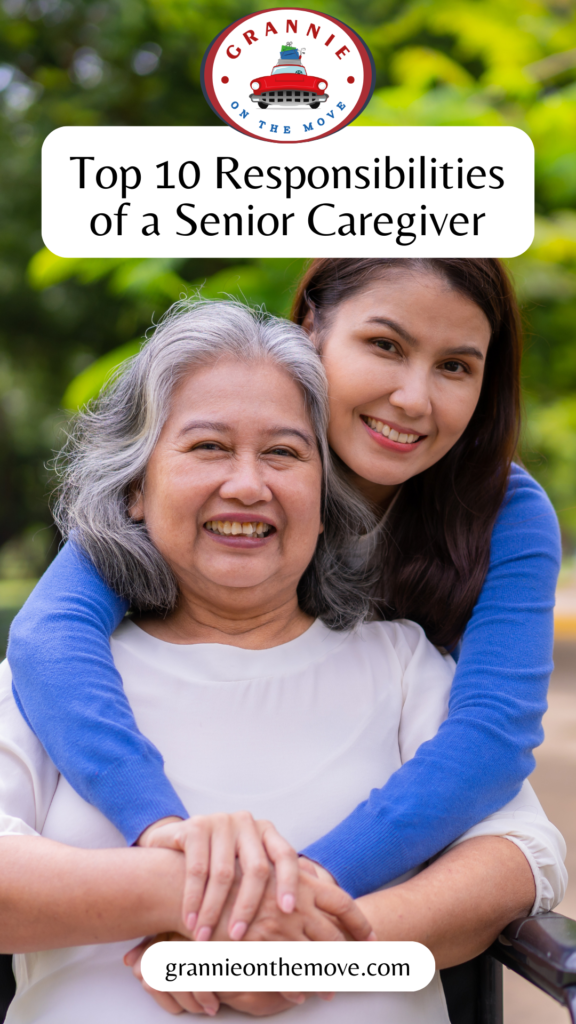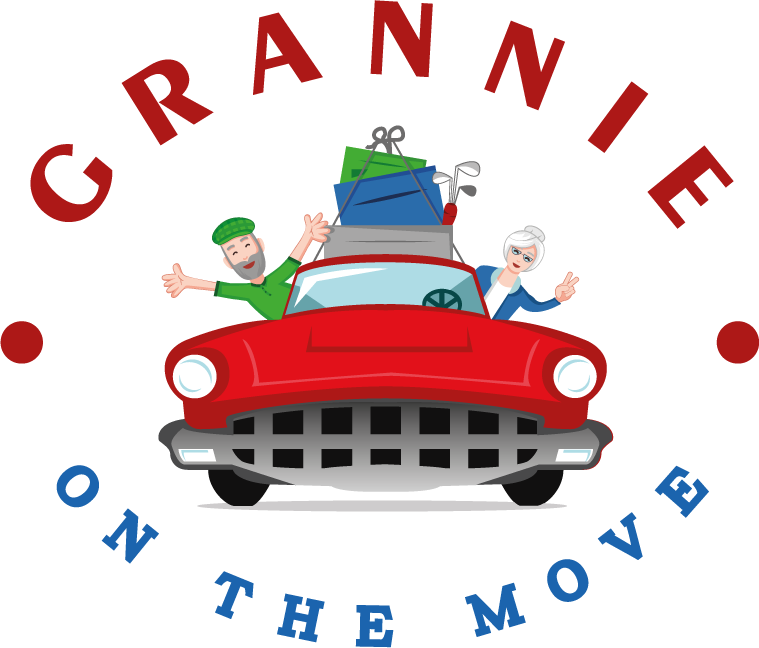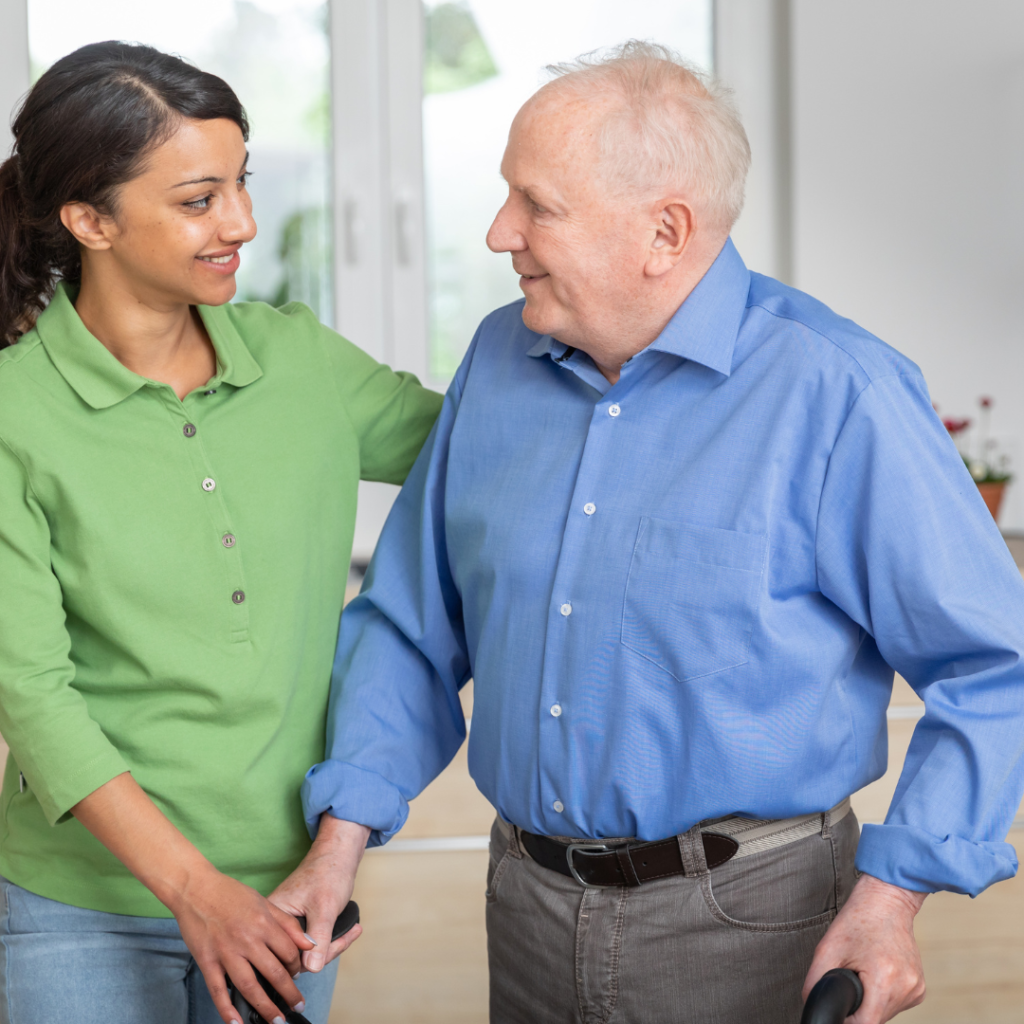Being a senior caregiver is one of the most rewarding yet challenging roles you can ever take on. It requires patience, understanding, and compassion to ensure that elderly individuals receive the care they need. But there’s more to it than providing basic needs; as a senior caregiver, you must also be prepared for unexpected situations. To help guide your journey in being an effective and compassionate caregiver, here are 10 of the most important responsibilities of a senior caregiver.
While everyone caregiver’s responsibilities may vary, these are the most common areas caregivers find themselves working within for the needs of their patients.
What is a Senior Caregiver?
A senior caregiver is trained to provide care and assistance to elderly individuals. They are often hired by families, assisted living facilities, nursing homes or home health agencies, but they can also be independent contractors.
A senior caregiver typically has experience working with the elderly and understands how to meet their physical and emotional needs. They should have a basic understanding of the medical and psychological needs of elderly individuals and be able to develop meaningful relationships with them.
The Responsibilities of a Senior Caregiver
The responsibilities of a senior caregiver involve providing much-needed support, compassion, and assistance to elderly individuals struggling with maintaining their independence while managing the effects of aging. To successfully fulfill this role, professional caregivers must possess the necessary skills and knowledge, as well as have an understanding of the needs of their clients.
Senior caregivers must also be willing to go above and beyond in providing quality care for the elderly in their charge. From providing companionship to helping seniors navigate the challenges of daily living, caregiver duties can involve various tasks that require dedication and commitment. The following tasks are a few examples of the most common responsibilities of a senior caregiver.
Top 10 Responsibilities of a Senior Caregiver
1. Provide Companionship
As a senior caregiver, it is important to provide your elderly client with companionship and engaging conversation that suits their needs. This can include reading aloud, playing games together, or just listening and providing a compassionate ear for the stories they have to tell.
Showing a genuine interest in those you care about builds trust and deeper connections that benefit both of you and can increase engagement in everyday activities. Being sensitive to the individual’s needs, capacities, and particular interests will ensure an enjoyable experience.
2. Assist with Activities of Daily Living (ADLs)
As a senior caregiver, personal care is one of your highest priorities – and supporting elderly individuals in their everyday activities (Known as Activities of Daily Living, or ADLs) and basic tasks can make a world of difference. ADLs involve bathing, dressing, eating, walking, and toileting, which are essential for maintaining independence.
Assisting with these activities when necessary helps ensure the safety and well-being of the older adult. Through knowledge and compassionate support to meet personal care needs, you can significantly enrich older adults’ lives while honoring their desire to stay independent for as long as possible.
3. Administer Medication
Senior caregivers are tasked with providing essential support to their elderly charges to ensure they live a safe, healthy, and comfortable life. An integral part of the caregiver’s duties is ensuring that medications are taken correctly, which requires strict adherence to doctors’ orders and close attention to detail.
In addition to providing medication reminders and recording dosages on logs, senior caregivers must be able to accurately count out pills and administer them at the appropriate time as prescribed by the physician. These tasks must always be taken seriously for seniors to benefit from their medication regimen.
4. Ensure Safety
Being a good in-home caregiver requires knowing how to keep elderly individuals safe. As part of this responsibility, good caregivers should conduct regular check-ins for home-tripping hazards and provide assistance with mobility issues.
Further still, medical professionals make every effort to ensure their clients avoid hazardous falls by providing support and ensuring safety aids are correctly used. Ultimately, good senior caregivers understand that their main job is to protect the well-being of those in their care.
5. Assist with Housekeeping
Senior caregivers play an increasingly essential role in the lives of elderly individuals and their families. One of these senior caregiving duties is tending to basic housekeeping chores and important tasks such as laundry, yard work, vacuuming, dusting, and food preparation.
This service helps to ensure a harmonious home environment for the elderly individual in question, allowing them to feel comfortable and secure in their own homes. Moreover, it can be a great source of peace and reassurance for families who know their beloved family member’s living space is being cared for with respect, attention, and consideration.
6. Provide Transportation
Senior caregivers have an important responsibility when it comes to providing transportation for their elderly patients. This task can range from taking individuals to important doctor’s visits, helping them run errands like buying items at the grocery store, or simply providing a reliable ride to visit friends and family.
Providing transportation shows a high level of commitment on the caregiver’s part and helps enhance their patients’ quality of life. Senior caregivers must take this role seriously to ensure their elderly patients safely reach their destinations.
7. Monitor Diet and Nutrition
Maintaining a proper diet and nutrition is essential to the senior care experience. As caregivers, we are responsible for ensuring that clients follow healthy habits and enjoy balanced meals. We should support them with grocery shopping, meal preparation, and cooking activities tailored to their needs.
Beyond following special dietary needs and guidelines, accommodating unique food preferences or modifying recipes to meet specific requirements can provide a sense of comfort for our clients. Taking the time to establish a movement plan can help seniors live an independent and healthier life.
8. Plan Recreational Activities
As a senior caregiver, it is important to provide variety in the activities of the elderly individuals you care for. Planning recreational activities appropriate for their physical and mental abilities is a key factor in their well-being and mental health. When designing activities, it is important to consider the individual’s likes and dislikes and specific physical limitations.
For example, if the individual is mobile enough to navigate outside, taking them on a stroll through the park could be a pleasant outing with natural beauty. Similarly, inviting friends over to partake in engaging board games could lift spirits and promote social connections. In either case, we must acknowledge personal boundaries and plan accordingly with thoughtful activities that both enliven and energize with mindful consideration of one’s limitations.
9. Provide Emotional Support
As a senior caregiver, it is important to be aware of the emotional needs that your clients may have. This great responsibility can include listening and providing comfort or simply being a friendly face during their day. Sometimes, it is merely enough to provide emotional support through simple gestures such as being present and engaging in small talk.
Additionally, being mindful of the complexities associated with aging can help caregivers remain supportive throughout their relationship with the client. With empathy and compassion as guideposts for caregiving, senior caregivers can be essential in providing social engagement and emotional assistance for elderly individuals.
10. Maintain Records
As a senior professional caregiver, it is important to maintain a dynamic and precise documentation system. This process should include regular updates on the condition and any changes in each patient’s daily activities. Maintaining accurate records is essential in providing those involved with quality care and peace of mind that their loved one is receiving the appropriate attention. To ensure smooth communication throughout this journey, these records should be available to the patient’s family members, healthcare providers, and all other parties involved in the care process.
Additionally, it is important to stay informed about changes in regulations, safety precautions, and best practices so that you can always provide the best care possible.
As a senior caregiver, your ultimate goal is to ensure your client feels safe, comfortable, and well taken care of. It can be a rewarding experience to work with the elderly and be an integral part of their day-to-day lives. With diligence and dedication, you can positively impact the lives of your elderly clients throughout old age.
Grannie On The Move Services
Grannie On The Move is a knowledgeable and experienced Senior Care Advisors and Healthcare Professionals team. Specializing in situations where seniors can no longer live independently at home, our team works to navigate every aspect of the transition.
Our diverse crew includes an expert nurse, a long-term care administrator, a professional caregiver, a real estate agent, and many other professionals.
This allows us to provide the highest quality services due to our combined 70 years of experience in the industry.
Want to learn more about how we can help you or a loved one navigate senior care options? Contact us today!


